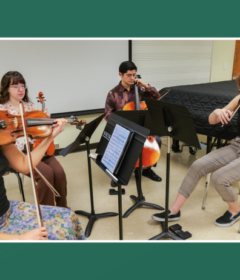Activist, Scholar Loretta Ross to host Stetson Stewart Lecture, March 18-19
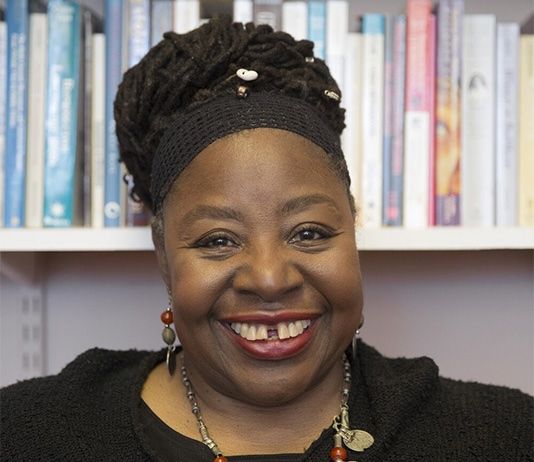
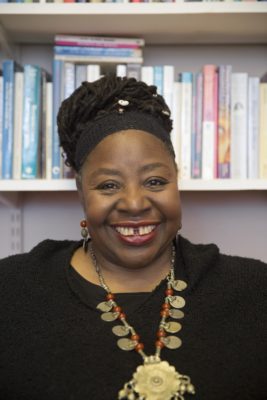
The Stetson University history department will host scholar and activist Loretta Ross on March 18-19 as this year’s esteemed Stewart lecturer.
Ross is an associate professor of the Study of Women and Gender at Smith College, where she teaches courses on white supremacy, human rights and “Calling In the Call Out” culture. She holds a bachelor’s degree from Agnes Scott College in women’s studies and has credits toward a doctorate in women’s studies from Emory University.
Ross has worked in two main areas: “calling people in” and reproductive justice.
Each topic will be addressed during her events — (March 18) in the Warren and Barbara Carr Stetson Room, located in the Carlton Union Building, and (March 19) in the CUB’s Faculty and Staff Lounge.
The two events:
- Monday, March 18, 7-p.m., “Calling People In to Persuade Toward Justice” – open to the public
- Tuesday, March 19, 4-6 p.m., “Reproductive Justice, Race, and Human Rights” – limited seating and must RSVP to Paul Croce, [email protected], to explore the possibility for attendance.
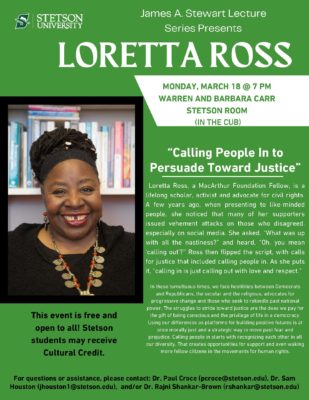
In 2015, Ross developed the idea of calling people “in.” She was presenting to likeminded people about reproductive justice, and she noticed that many of her supporters issued vehement attacks on those who disagreed both in person and on social media. She asked one of them, “What was up with all the nastiness?” and she heard the response, “Oh, you mean ‘calling out’?’’
“Calling out,” after all, was a phrase used in dueling, which resulted in killing your opponent.
Ross flipped the script, wondering how calls for justice could benefit from calling people “in” rather than “out.” Her recent path doesn’t mean dropping her opposition to those she disagrees with, but she notes that “calling in is just calling out with love and respect.”
“I perceive that her work for reproductive justice anticipates her work on calling in people who disagree,” said Paul Croce, PhD, professor of History and American Studies at Stetson.
Croce is one of three faculty members who have worked together to organize several campus events, including the 2024 Stewart Lecture. The other two faculty members are Sam Houston, PhD, and Rajni Shankar-Brown, PhD. Shankar-Brown is the Jessie Ball duPont Endowed Chair of Social Justice Education and founder of the Institute for Catalyzing Equity Justice and Social Change.
Noting that Ross’ work is timely and impactful, Shankar-Brown integrates Ross’ work into her courses, including as a part of her “Advancing Human Rights and Social Justice: Art as Activism.”
Commented Shankar-Brown, “I am so excited that we have the opportunity to host Dr. Loretta Ross on campus in March during Women’s History Month, or what I prefer to call Herstory 365, as Ross is an incredible woman scholar and activist, and her herstory provides students with inspiration — including her early activism as a first-year student at Howard University and with her many contributions to the National Organization for Women. I thank women such as Loretta Ross, who have helped pave the way for other women scholars and activists.”
Shankar-Brown’s father was also a Howard student, and she actively partners with NOW on many projects, such as the Ending Poverty and Homelessness Conference she founded.
According to her biography, Ross is a rape survivor, forced to raise a child born of incest and also a survivor of sterilization abuse at age 23. She is a model of how to survive and thrive despite the traumas that disproportionately affect low-income women of color.
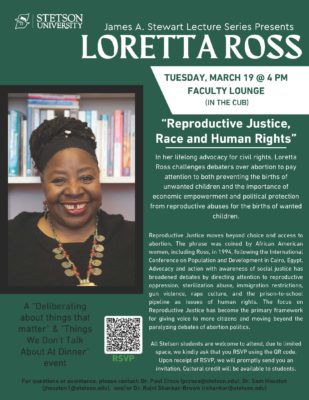
In the 1990s, Ross pioneered challenges to pro-choice advocates to listen to the types of arguments championed by pro-life advocates. In particular, her focus has been on the experiences of women and families with children, of women and families wanting to have children, and of those suffering the injustices of often-involuntary sterilizations and burdened with poor life conditions that undercut healthy family life for the adults making choices and for their children.
In addition to her work as a professor and lecturer, Ross is a cofounder of the SisterSong Women of Color Reproductive Health Collective, a Principal Partner with 14th Strategies Consultants and a recipient of a MacArthur Fellowship, Class of 2024, in recognition of her wide-ranging advocacy for human rights.
Stewart Lecture History
James A. Stewart, PhD, was appointed as Stetson’s first chaplain in 1955. He also taught in Stetson’s philosophy department and served as dean of the chapel for 10 years before his passing in 2005 at the age of 101.
The Stewart Lecture Series was initiated in 1990 by members of Stewart’s former church in Jacksonville, as well as alumni and friends of Stetson, to honor the memory of Stewart’s genuine commitment to honest inquiry and rigorous scholarship, blended with humble wisdom. When asked what his long-life vocation had taught him, Stewart replied, “That a person whose mind is closed to new ideas is dead; people who think they know all the answers to every question of life is not worth listening to; that there is a great deal more about religious faith that we don’t understand than we do understand; and that we must have the courage to pursue truth no matter where it leads.”
The Stewart Lectures have sought to bring leading voices of ethical values to campus, encouraging students to be socially responsible and involved in their communities. Previous speakers include Jürgen Moltmann (1990), Desmond Tutu (1991), Jimmy Carter (1992), Elie Wiesel (1996), Bill Moyers (1998), Jane Goodall (2000) and E.O. Wilson (2009).
Today, the James A. Stewart Lectures, sponsored by the College of Arts and Sciences, and co-sponsored by the Department of History, the Office of Diversity and Inclusion, and the Multicultural Student Council, are administered under the leadership of Croce. Just as the series has always done, the current aim of the James A. Stewart Lectures is to stimulate awareness of the power of critical reasoning and ethical commitment to address the challenges in our ever-changing world.
-Trish Wieland


